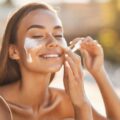Why Sunglasses Are Essential for Eye Health
We often think of sunglasses as a stylish accessory, but they play a crucial role in protecting our precious eyes from harmful UV rays. Just as we apply sunscreen to shield our skin, wearing sunglasses is like “sunscreen for your eyes.” Quality sunglasses are an investment in long-term eye health and comfort.
Experts agree that consistent use of proper eye protection is one of the most important things we can do to care for our vision. Let’s explore the many ways sunglasses safeguard our eyes and why making them a daily habit is so beneficial.
How UV Rays Impact Eye Health
Ultraviolet (UV) radiation from the sun can have damaging effects on our eyes over time. There are two main types of UV rays to be aware of:
- UVA rays – These penetrate deep into the eye and may contribute to cataracts and macular degeneration.
- UVB rays – These affect the eye’s surface and can cause painful conditions like photokeratitis (essentially a sunburn on your eye).
Prolonged UV exposure has been linked to several eye conditions, including:
- Cataracts
- Macular degeneration
- Pinguecula and pterygium (growths on the eye’s surface)
- Skin cancer around the eyelids
By blocking 99-100% of UV rays, quality sunglasses provide essential protection against these potential issues. They allow us to enjoy outdoor activities while keeping our eyes safe and healthy.
Key Features of Protective Sunglasses
When choosing sunglasses for eye health, look for the following important features:
- 100% UV protection – Ensure lenses block 99-100% of both UVA and UVB rays.
- Large lenses – Wraparound styles or larger lenses provide more coverage.
- Polarized lenses – These reduce glare and eye strain, especially around water or snow.
- Impact-resistant lenses – Polycarbonate lenses offer added safety for sports and active lifestyles.
- Proper fit – Sunglasses should fit comfortably and stay in place during activities.
Remember, darker lenses don’t necessarily mean better protection. The UV coating is what matters most, regardless of tint. Investing in high-quality sunglasses from reputable brands ensures you’re getting reliable eye protection.
Beyond UV Protection: Additional Benefits of Sunglasses
While UV protection is the primary health benefit, sunglasses offer several other advantages:
- Reduced eye strain – Sunglasses minimize squinting and help your eyes relax in bright conditions.
- Better vision – By reducing glare, you can see more clearly and comfortably.
- Protection from elements – Sunglasses shield your eyes from wind, dust, and debris.
- Faster dark adaptation – Wearing sunglasses during the day helps your eyes adjust more quickly to lower light conditions.
- Headache prevention – For some people, sunglasses can help prevent light-triggered headaches or migraines.
By incorporating sunglasses into your daily routine, you’re not just protecting your eyes – you’re enhancing your overall comfort and visual experience outdoors.
When and Where to Wear Sunglasses
Many people underestimate how often they should be wearing sunglasses. For optimal eye health, experts recommend wearing them:
- Whenever you’re outside during daylight hours, even on cloudy days
- Year-round, not just in summer (UV rays are present in all seasons)
- At high altitudes, where UV intensity increases
- Around reflective surfaces like water, snow, or sand
- When taking certain medications that increase light sensitivity
Making sunglasses a consistent habit, just like applying sunscreen, is key to long-term eye health. Keep a pair in your car, bag, or by the door so you’re always prepared.
Caring for Your Eyes Beyond Sunglasses
While sunglasses are a crucial tool for eye protection, there are other steps you can take to support your overall eye health:
- Schedule regular eye exams to catch any issues early
- Eat a diet rich in eye-healthy nutrients like omega-3s, vitamin C, and lutein
- Stay hydrated to keep your eyes lubricated
- Practice the 20-20-20 rule when using digital devices (every 20 minutes, look at something 20 feet away for 20 seconds)
- Wear protective eyewear for sports and certain work activities
- Don’t smoke, as it increases the risk of several eye conditions
By combining these habits with regular sunglass use, you’re giving your eyes the best possible care and protection.
Frequently Asked Questions
1. Can cheap sunglasses protect my eyes?
While price doesn’t always indicate quality, very cheap sunglasses may not provide adequate UV protection. Look for sunglasses that specifically state they block 99-100% of UV rays, regardless of price.
2. Do I need sunglasses on cloudy days?
Yes! Up to 80% of UV rays can penetrate cloud cover. Wearing sunglasses on overcast days is still important for eye protection.
3. Are polarized lenses necessary?
While not essential for UV protection, polarized lenses reduce glare and can significantly improve visual comfort, especially around water, snow, or when driving.
4. How often should I replace my sunglasses?
If your sunglasses are in good condition and still fit well, they can last for years. However, replace them if they become scratched, damaged, or no longer fit properly, as this can compromise their protective abilities.
5. Can children wear adult sunglasses?
It’s best to choose sunglasses specifically designed for children. These will fit better, stay in place during active play, and provide appropriate coverage for smaller faces.
Remember, protecting your eyes is an act of self-care and compassion. By making sunglasses a consistent part of your daily routine, you’re nurturing your long-term eye health and overall well-being. Embrace the habit of wearing sunglasses not just as a fashion statement, but as a loving gesture towards your precious sense of sight.









